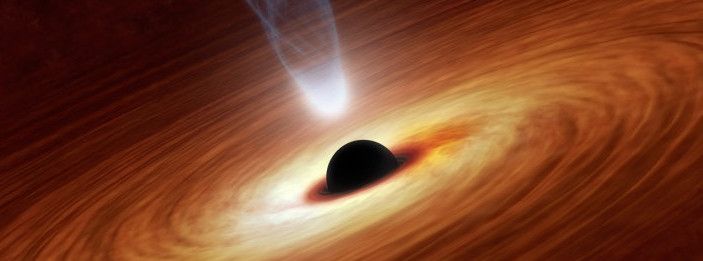We have no choice BUT to become an interstellar species if we want to survive, even into the near future.
Page 9217
Jul 7, 2015
The 4D Future of Stuff — By Megan Molteni Popular Science
Posted by Seb in category: 4D printing

Ours is a world of static objects, cut, cast, or forged for specific tasks. But let’s say you opened an Ikea box, and the desk inside assembled itself. Or your water pipes shrank as the pressure decreased: no more weak showers, less wasted water. This is the 4D-printed future, and labs are already striving to make it a reality.
The tech builds on 3-D printing—with the added fourth dimension of time, across which objects transform. Skylar Tibbits, founder of MIT’s Self-Assembly Lab, coined the term “4D printing” in a 2013 TED Talk and showed how a straight plastic strand folded into the letters M, I, T when dropped in water.
Jul 7, 2015
Could we do without cause and effect? — Mathias Frisch | AEON
Posted by Seb in category: theory
“Feynman argued that the laws of physics do not exhibit a unique, logical structure, such that one set of statements is more fundamental than another. Instead of a hierarchical ‘Euclidean conception’ of theories, Feynman argued that physics follows what he calls the ‘Babylonian tradition’, according to which the principles of physics provide us with an interconnected structure with no unique, context-independent starting point for our derivations. Given such structures, Feynman said: ‘I am never quite sure of where I am supposed to begin or where I am supposed to end.’ I want to suggest that we should think of causal structures in physics in the very same way.” Read more
Jul 7, 2015
Giant Battle Bots from Japan and the US Are Scheduled To Duel | TNW News
Posted by Odette Bohr Dienel in categories: engineering, ethics, futurism, hardware, humor
Remember Pacific Rim? Giant battle droids kicking the hell out of monsters? Well, that’s (almost) becoming a reality: Giant bots built in Japan and America are set to go head-to-head in combat.
Tag: Robots
Jul 7, 2015
Universe might contain millions of black holes
Posted by Philip Raymond in categories: astronomy, gravity, physics, space
[from Engadget]

Black holes are, by definition, impossible to see by conventional methods and are often further obscured by thick blankets of dust or gas. But that’s not an issue for NASA’s Nuclear Spectroscopic Telescope Array (NuSTAR). It can peek through the obscuring layers and monitor the black holes via the high-energy X-rays that they emit. And, after a recent survey that spotted five previously unknown supermassive black holes in the centers of various galaxies, NASA researchers now think there could be millions of of them dotting the Universe like the holes of an intergalactic colander.
“Thanks to NuSTAR, for the first time, we have been able to clearly identify these hidden monsters that are predicted to be there, but have previously been elusive because of their surrounding cocoons of material,” said George Lansbury of Durham University in a statement. “Although we have only detected five of these hidden supermassive black holes, when we extrapolate our results across the whole universe, then the predicted numbers are huge and in agreement with what we would expect to see.” The team’s research has been accepted for publication in The Astrophysical Journal.
Tags: Black Holes, galaxies, NASA, NuSTAR
Jul 6, 2015
Evolutionary Biologist Suggests Aliens Look Like Us
Posted by Philip Raymond in categories: alien life, astronomy, cosmology, evolution, first contact, space
According to the reputable Australian astro-enthusiast journal, SkyNews, a leading biologist says that it is surprising we have not already discovered extra-terrestrials that look like us — given the growing number of Earth-like planets now discovered by astronomers.
 Simon Conway Morris, an evolutionary biologist suggests that aliens resembling humans must have evolved on other planets. He bases the claim on evidence that different species will independently develop similar features which means that life similar to that on Earth would also develop on equivalent planets.
Simon Conway Morris, an evolutionary biologist suggests that aliens resembling humans must have evolved on other planets. He bases the claim on evidence that different species will independently develop similar features which means that life similar to that on Earth would also develop on equivalent planets.
The theory, known as convergence, says evolution is a predictable process which follows a rigid set of rules. Read the full story at Skynews…
__________
Philip Raymond is Co-Chair of The Cryptocurrency Standards
Association [crypsa.org] and chief editor at AWildDuck.com
Tags: aliens, evolution, Simon Conway Morris, SkyNews
Jul 6, 2015
The Netherlands: A Look At The World’s High-Tech Startup Capital
Posted by Odette Bohr Dienel in categories: economics, education, innovation
Behind London and Berlin, the Dutch startup scene is already considered to be one of the most prominent in Europe. (If it feels unfair to weigh an entire country against individual cities, consider that the Netherlands has 17 million people crammed into an area half the size of South Carolina.)
Jul 6, 2015
Marriage Won’t Make Sense When Humans Live for 1,000 Years
Posted by Zoltan Istvan in categories: life extension, robotics/AI
My latest story for Vice Motherboard: Is it time to start phasing out the institution of marriage now that we’re soon going to be living indefinitely? And what are the rules with marrying robots?
Jul 6, 2015
Construction Project of the Day: Dubai is 3D-Printing an Entire Building
Posted by Sean Brazell in categories: 3D printing, biotech/medical, futurism
We’ve seen 3D-printed cars and even 3D-printed body organs, but now the city of Dubai plans to use the technology to create an entire office building. Because they are always trying to one-up themselves. Dubai is known around the world for its over-the-top architecture, extreme stunts and attention-grabbing New Year’s Eve light shows.
Jul 6, 2015
Major bank admits bitcoin could destroy banks, brokers & exchanges
Posted by Philip Raymond in categories: bitcoin, cryptocurrencies, finance, geopolitics
July 9 update:
3 days after posting, Visa acknowledged that Bitcoin has a future in payments. This is an understatement, of course. The bank described below goes a step further by acknowledging that the entire financial infrastructure may cave to cryptocurrencies.
 French bank BNP Paribas warned customers and investors that the technology behind bitcoin might one day overtake conventional, account-based financial institutions, thus rendering existing companies redundant (that’s British for “obsolete”).* It’s a tectonic acknowledgement from one of the world’s biggest banks.
French bank BNP Paribas warned customers and investors that the technology behind bitcoin might one day overtake conventional, account-based financial institutions, thus rendering existing companies redundant (that’s British for “obsolete”).* It’s a tectonic acknowledgement from one of the world’s biggest banks.
Analyst Johann Palychata writes in the company’s magazine Quintessence that Bitcoin’s blockchain, the underlying architecture that allows cryptocurrency to function, “should be considered as an invention like the steam or combustion engine,” that has the potential to transform the world of finance and beyond.
Check out the full story by Oscar Williams-Grut at Business Insider.
Continue reading “Major bank admits bitcoin could destroy banks, brokers & exchanges” »
Tags: banks, bitcoin, block chain, BNP Paribas, Quintessence












